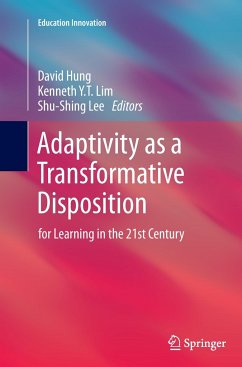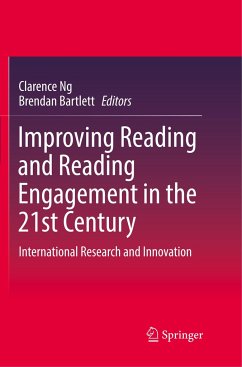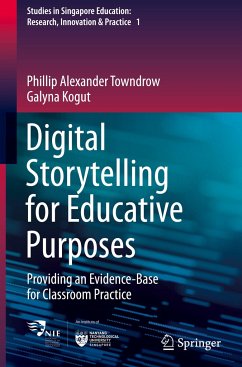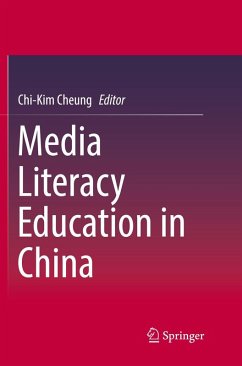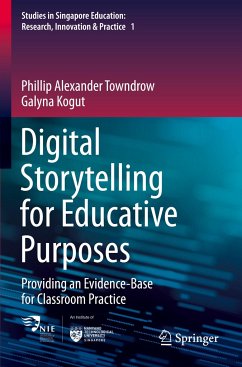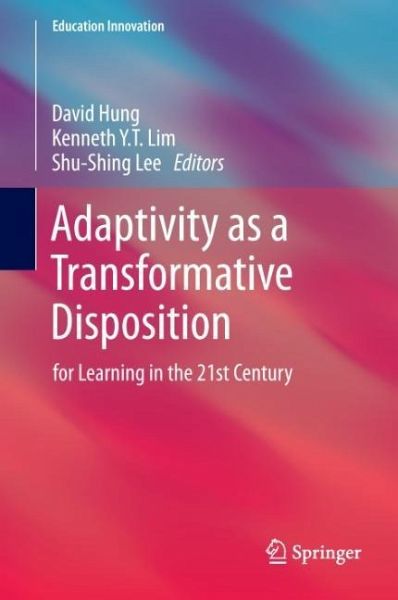
Adaptivity as a Transformative Disposition
for Learning in the 21st Century
Herausgegeben: Hung, David; Lim, Kenneth Y. T.; Lee, Shu-Shing

PAYBACK Punkte
38 °P sammeln!
This volume introduces the concept of 'adaptivity' as occurring when, say, individuals cross boundaries. Through illustrations from both formal and informal learning, the book seeks to provide learning designs and frameworks for adaptivity. This book is unique as it ties together: a) social-individual dialectics; and b) adaptive learning as it relates to creativity and imagination. It highlights case studies from social / new media contexts, school learning milieux, and formal and informal situations. It approaches adaptive learning from the perspectives of students, teachers, school leaders, ...
This volume introduces the concept of 'adaptivity' as occurring when, say, individuals cross boundaries. Through illustrations from both formal and informal learning, the book seeks to provide learning designs and frameworks for adaptivity. This book is unique as it ties together: a) social-individual dialectics; and b) adaptive learning as it relates to creativity and imagination. It highlights case studies from social / new media contexts, school learning milieux, and formal and informal situations. It approaches adaptive learning from the perspectives of students, teachers, school leaders, and participants in social media and other digitally mediated environments. The book is a valuable resource for practitioners and academics who are interested in adaptivity as a learning disposition.





